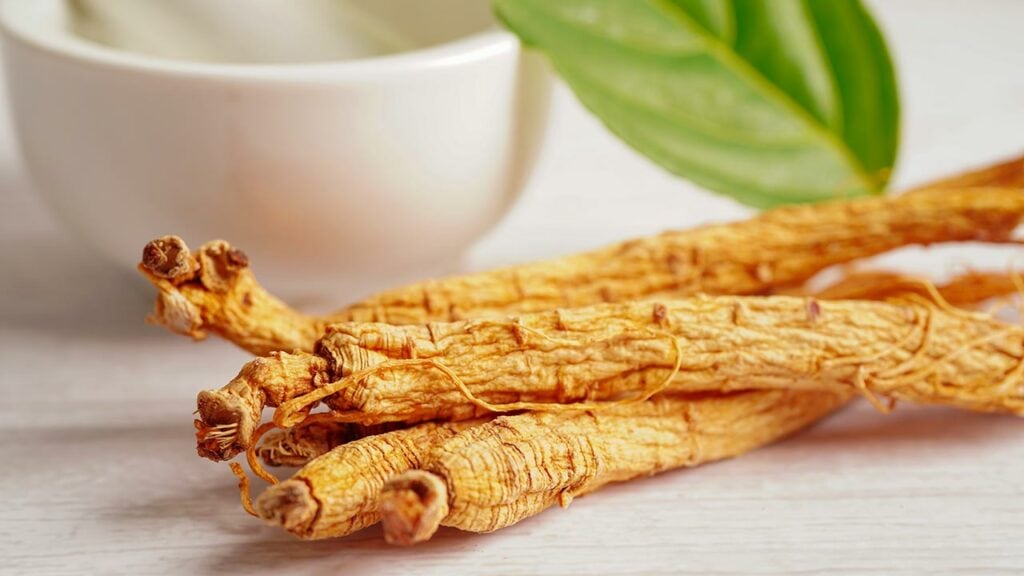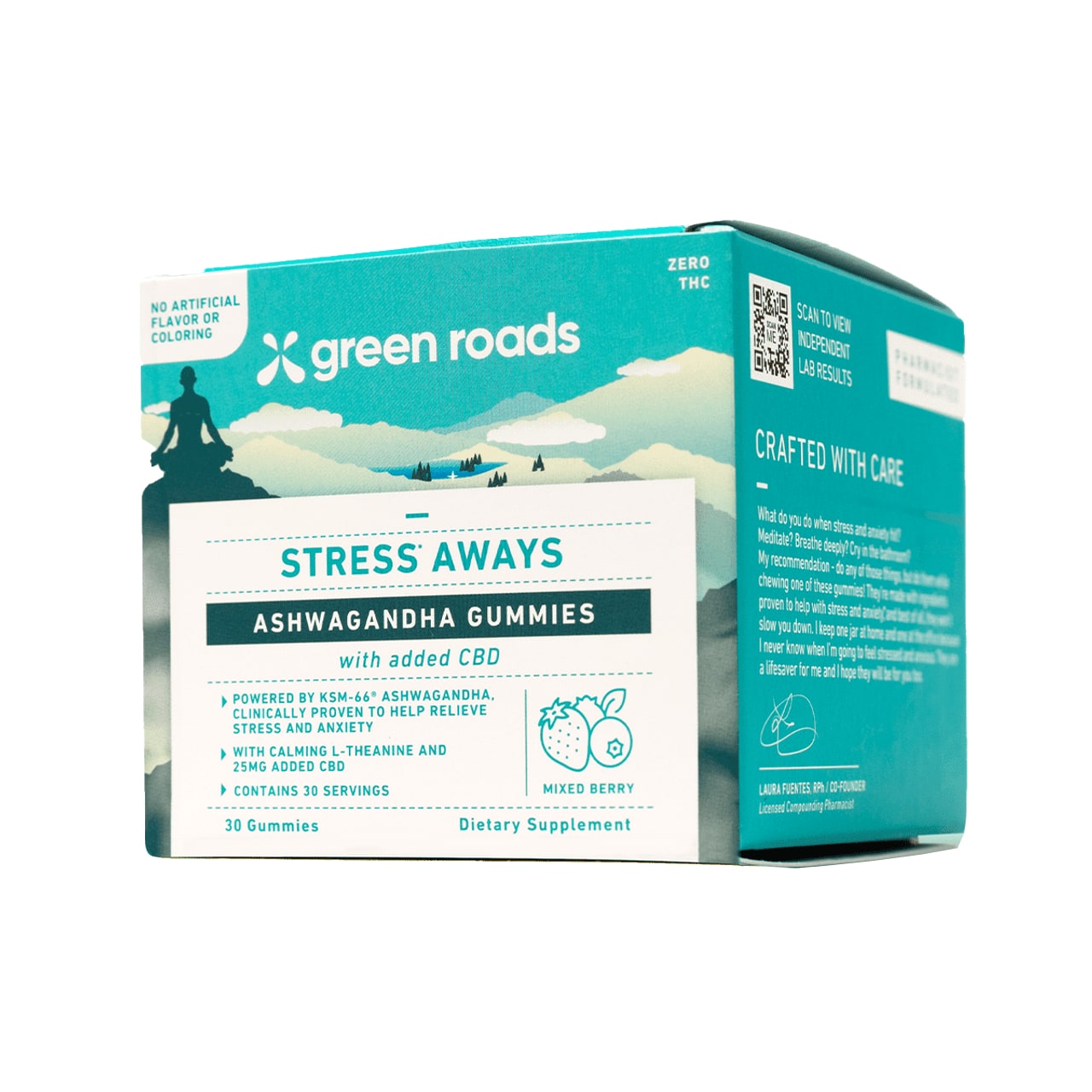Pairing CBD with Adaptogens
Summarize

When you shop for CBD products, you will notice that many have ingredients like reishi mushroom and ashwagandha. These are adaptogens which are chemicals in certain plants. People choose supplements with ingredients like ashwagandha adaptogen because they affect the neuroendocrine-immune system.
CBD interacts with the endocannabinoid system, a neuromodulatory system regulator. Researchers have found that CBD may also relieve some feelings of discomfort. Pairing CBD with adaptogens is a synergistic approach to more effectively bringing the body’s systems into balance, potentially increasing relaxation and delivering other wellness benefits.

TL;DR (Too Long; Didn’t Read):
Adaptogens are plant chemicals found primarily in herbs, roots and mushrooms. They are believed to increase energy by helping the body restore homeostasis. Adaptogens work on the neuroendocrine-immune system, while CBD interacts with the endocannabinoid system and may also increase feelings of calm. Pairing CBD with adaptogens can achieve synergy, which means you may experience more relaxation compared to taking each alone.
Table of Contents
What Are Adaptogens?
Adaptogens are chemicals found in roots, herbs, mushrooms and other plants that are believed to assist the body with reducing the health effects by increasing oxygen consumption and supporting the adrenal system. They have been used since ancient times to help with illness recovery, memory impairments and restoring the body’s homeostasis.
For a plant chemical to be considered an adaptogen, it must meet three conditions.
- It is non-toxic when consuming regular doses
- It helps the body cope with mood signals
- It supports the body’s return to homeostasis
What Are Adaptogens’ Benefits?
Though more research is needed, there is evidence that adaptogens may provide many benefits due to their biologically active compounds. For example, clinical evidence shows that they affect the pituitary gland, oxide levels, cortisol levels, blood glucose levels, and more. Potential benefits include the following:
- Increases the body’s resistance to tension
- Improves physical endurance
- Reduces chronic fatigue
- Enhances the immune system
- Reduces cognitive impairment
Some of the common adaptogens include ashwagandha, reishi mushroom, ginseng, Tulsi (holy basil), Rhodiola, cordyceps, curcumin and kava kava. Each one has been associated with producing particular effects.

One of the popular adaptogen herbs is the ashwagandha adaptogen which is native to Africa and Asia and has been used in the Indian Ayurvedic medicine system for thousands of years. Various research projects have found it is a reliever that soothes the nervous system when it is experiencing a response. Clinicians are using ashwagandha as a compound for:
- Neuroprotection
- Relaxation
- Analgesic purposes
Each adaptogen serves a different purpose. For example, the reishi mushroom is a fungus heavily used in Asian medical systems.
Is CBD an Adaptogen?
CBD is technically not defined as an adaptogen, but it acts like one. Research has found that CBD helps the body maintain a calm state. This is one of the qualities of an adaptogen. It has the potential to modulate mood signals.
Clinical studies have not verified that CBD meets all three requirements to be called an adaptogen, but research is ongoing. Technically, CBD is a molecule, and it is believed that more studies are needed in areas of toxicity and homeostasis. However, as mentioned, clinical studies have found that CBD does act like an adaptogen.
Pairing CBD with Adaptogens
Pairing CBD with adaptogens makes sense because they multiply the ability to reduce physical and mental expressions of tension. CBD and adaptogens are each believed to regulate the response and help the body adapt to return to homeostasis.
CBD works in the endocannabinoid system, which regulates perception, mood, sleep and immune function. Adaptogens work on the hypothalamic-pituitary-adrenal (HPA) axis. The system consists of hormones, glands and receptors. Adaptogens also may interact with the immune-neuro-endocrine system, impacting energy levels and immune responses.
Synergy is created when pairing CBD with adaptogens. Though they work through different pathways, both may increase feelings of relaxation and deliver other wellness benefits through systems regulation.
How to Take Adaptogens?
Adaptogens are called herbal supplements and come in many forms. Churna is a term in Ayurveda that refers to a fine powder used to treat various health issues. It is a mixture of adaptogens. The powder can be mixed with water, honey or food.
When you shop for CBD formulated with adaptogens, you will find many options to suit your needs: CBD gummies, capsules, oil drops, and more.
CBD products are available in full spectrum, broad spectrum and CBD isolate plus other cannabinoids and one or more adaptogens. For example, you can choose peppermint isolate CBD drops made with ashwagandha and rhodiola for energy. You can make the popular adaptogen tea by adding CBD oil or powder that contains adaptogens to your favorite tea recipe.
Start with a low-potency CBD product containing adaptogens to make sure you do not experience adaptogen side effects. Some people may experience side effects like dry mouth and nausea. However, most people do not.
The Best Nature Has to Offer
Adaptogens are compounds that can help your body better manage triggers to minimize the potential adverse effects on the body. Combined with CBD, you can experience a synergistic effect as both natural elements enhance results, leading to a sense of calm and physical balance. Always consult a doctor before taking CBD products with adaptogens to verify that they will not interact with medications you may be taking.
Sources
- https://www.ncbi.nlm.nih.gov/pmc/articles/PMC7756641/
- https://www.ncbi.nlm.nih.gov/pmc/articles/PMC8704602/
- https://www.sciencedirect.com/topics/medicine-and-dentistry/adaptogen
- https://www.ncbi.nlm.nih.gov/pmc/articles/PMC8398443
- https://www.ncbi.nlm.nih.gov/pmc/articles/PMC3252722/
- https://www.ncbi.nlm.nih.gov/pmc/articles/PMC6319597/
- https://www.ncbi.nlm.nih.gov/pmc/articles/PMC6240259
Share this post



0